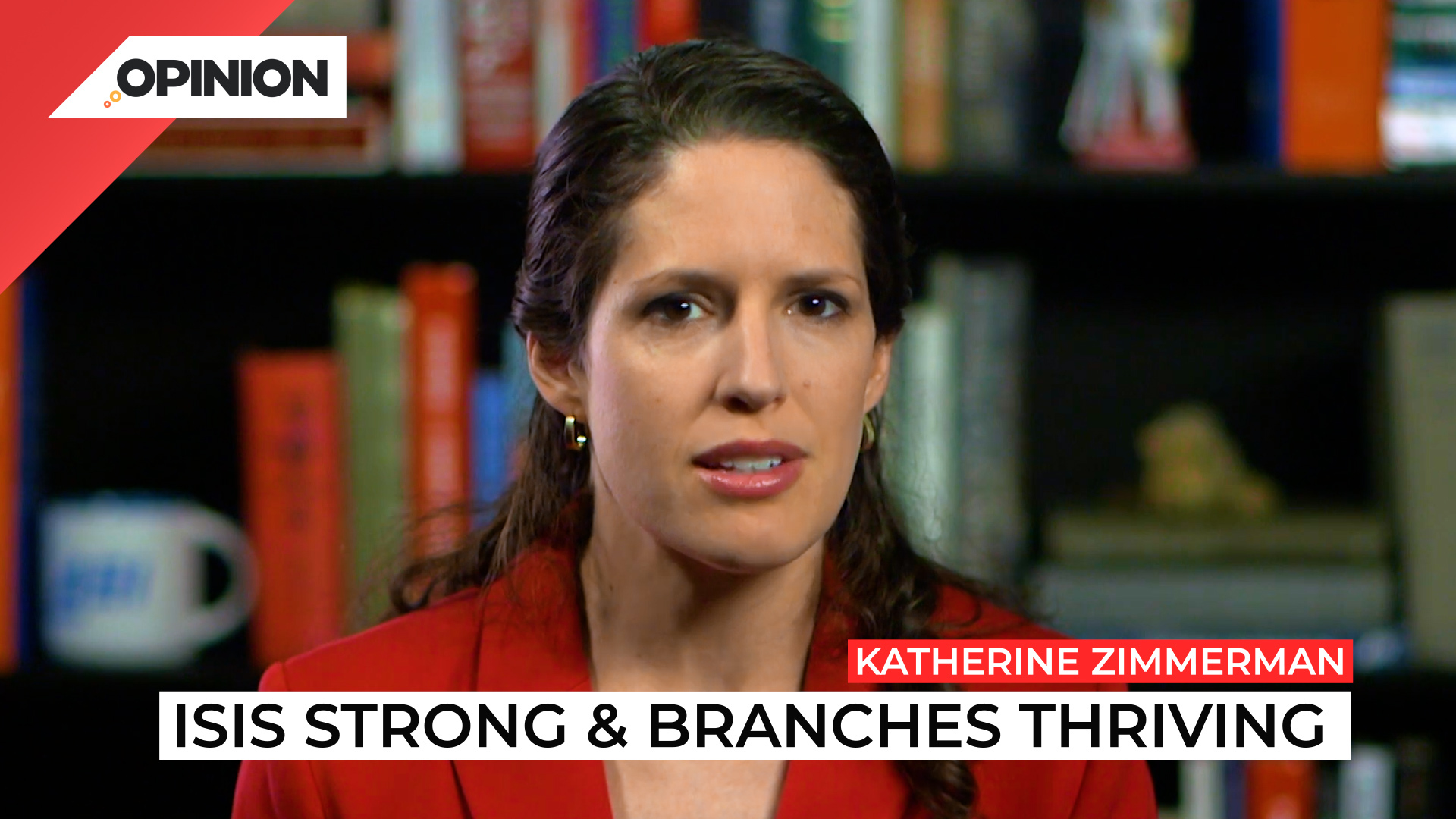
Commentary
-
Our commentary partners will help you reach your own conclusions on complex topics.
Is the Islamic State in crisis?
The news from Iraq and Syria seems to indicate the organization, which once controlled large swaths of the countries, remains weakened. But the short answer is no.
Across the globe, the Islamic State remains strong. Islamic State branches have proven that they are, in fact, insulated from the fate of the core group in Iraq and Syria.
The Islamic State is not what it was when it hit the news in 2014 and 2015, but its powerful global network means its threat persists.
General McKenzie, who leads US Central Command, testified in mid-March that the Islamic State in Iraq and Syria has been severely degraded—it relies primarily on hit-and-run attacks that are not coordinated, signs of a weak insurgency.
It still has the potential to destabilize Iraq, which faces myriad other challenges, and has sought to reconstitute forces through attacks on prisons in Syria, such as the massive fight to break members out of a detention center in Hasakah.
To add to this, the Islamic State lost its leader in early February. The organization took 42 days to name a successor and when it did, it hid his identity. That gap, though the longest, is not completely unprecedented. It had taken 28 days to name the new leader before. Nor is the mystery surrounding the new caliph.
The last one, Abu Ibrahim, never once spoke to his followers or showed his face, yet they followed him devoutly. The global branches rallied behind the new leader, Abu al Hassan, as they had with his late predecessor. Such loyalty was expected. They had all stayed as part of the Islamic State after the death of their first leader, Abu Bakr al Baghdadi.
If they had only joined the Islamic State for the money it could offer or the prestige of the top-name in terror, they would not have stayed.
By the time of Baghdadi’s death in 2019, the Islamic State was not pumping cash out to its branches and had fallen from the headlines.
One after the other, they pledged allegiance and posted images of their support. The declarations came in from Iraq, Syria, Nigeria, Somalia, East Asia, Yemen, Afghanistan, Libya, the Sahel, Pakistan and India, Egypt, the Congo, and Mozambique.
Masked men in military fatigues, heavily armed, and carrying the signature black banner of the Islamic State filled these photos. These Islamic State branches have flourished even as the group withered in Iraq and Syria.
The rapid expansion of the Islamic State in Africa has been particularly concerning. The group’s largest branch in Africa has taken control of much of northeastern Nigeria, and has started taxing and policing locals.
Another branch in the Sahel is embedding itself into smuggling networks that crisscross the Sahara desert moving goods from the Gulf of Guinea to the Mediterranean Sea. And the Islamic State has entered and stoked local insurgencies in Mozambique and the Democratic Republic of the Congo.
In Afghanistan, the Islamic State has nearly doubled in size since the Taliban takeover—in part from fighters released when the Taliban opened Afghanistan’s prisons.
The group is expected to ramp up attacks over the summer as fighting season resumes, and the Taliban will struggle to maintain pressure on the Islamic State.
As the Islamic State branches have developed, they have maintained much of their autonomy from the core group.
The weak regional structures that do exist have protected the groups from developing any dependencies on the core for their operations and has also limited the global network from benefiting strategically from its actual expanse.
But, what all of this means is that the Islamic State remains strong globally. Its branches are thriving. Easing counterterrorism pressure as the world focuses elsewhere will only favor further growth, regardless of what happens in Iraq and Syria.
-
US should help Yemen fight Houthis
Recent Houthi attacks on U.S. Navy vessels and U.S. counter-strikes against Houthi targets in Yemen have triggered a foreign policy debate on how the United States should proceed and on whether a larger U.S.-Houthi conflict might be imminent. Houthi leaders say that their aim is to impede Israeli trade and shipping, even though many of… -
US must respond to threat from Iran-backed Houthis
Last month, the commander of Iran’s Islamic Revolutionary Guards Corps Quds Force told the head of Hamas’ military wing that Iran will do “whatever it takes” to support them in its war with Israel. Meanwhile, the Iranian-backed Houthi rebels in Yemen intensified attacks on commercial ships in the Red Sea, prompting U.S. warships to shoot… -
US, Israeli counterterrorism policy must adjust after Hamas attack
Revered Israeli and U.S. intelligence agencies failed to detect the signs of an imminent Hamas attack on Israeli villages near the Gaza Strip. The surprise attack was planned within Hamas’s military wing and highlights both Israel’s intelligence blind spots as well as Hamas’s use of “old-school techniques” like in-person communication. Straight Arrow News contributor Katherine… -
US must sustain pressure against al-Qaeda
The United States and its allies have severely reduced the capacity for al-Qaeda, the terrorist group behind the 9/11 attacks, to organize or carry out any large-scale terrorist attacks against the U.S. homeland. Recent U.S. intelligence assessments suggest al-Qaeda is weaker than ever in Afghanistan, while experts and international observers continue to warn that al-Qaeda is… -
African coups demand US policy changes
A string of recent military coups toppling governments in the African Sahel, from Guinea to Sudan, poses new risks and challenges to the United States. France, formerly a key ally in African security affairs, has also massively reduced its forces on the continent, at times being chased out by pro-Moscow forces. Straight Arrow News contributor…
Latest Opinions
-
 AP Images
AP Images
Trump administration cuts 2,000 USAID jobs and places staff on leave
-
 Getty Images
Getty Images
Ex-Proud Boys leader denies sending bomb threat targeting center-right event
-
 Getty Images
Getty Images
Germany's center-right CDU party wins election
-
 Getty Images
Getty Images
Pope remains in critical condition, shows kidney failure
-
 Getty Images
Getty Images
Scientists monitor Mount Rainier following 1,000 years of dormancy
Popular Opinions
-
In addition to the facts, we believe it’s vital to hear perspectives from all sides of the political spectrum.






